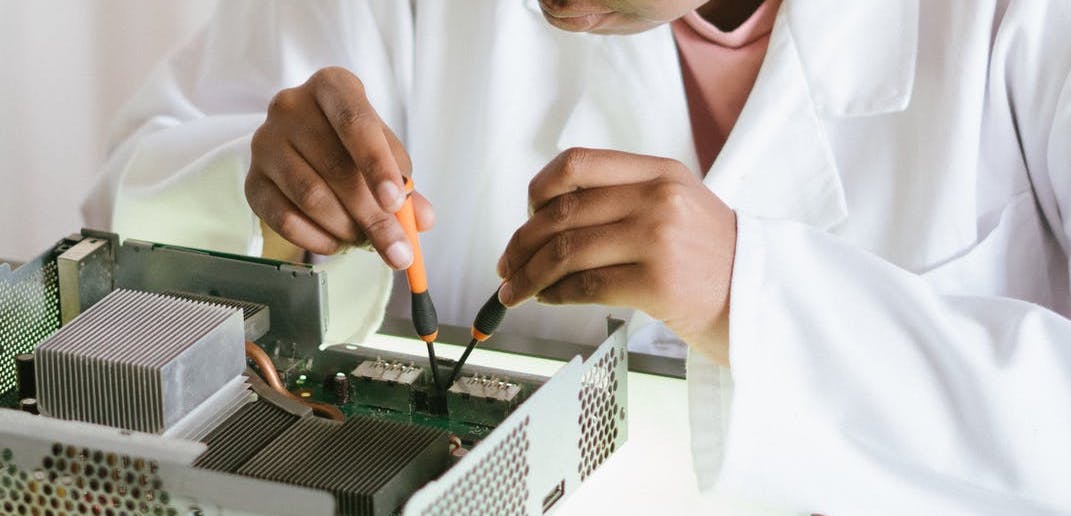


Which parents do not want the best for their children? The decisions to send a child to one school in preference to another range from simple geography to more suspect, reputational information.
State schools work overtime to try and raise their standing in the public psyche but for little reward. Yet, even though murky waters in the private school sector have come to light in recent times, these schools still maintain an allure for many parents.
Rightly or wrongly, a school’s reputation, at least at secondary level, is generally based on its examination results. There is a perception amongst some islanders that below a certain demographic there is a malaise, which manifests itself as a lack of expectation and aspiration in respect of parental attitude towards their children’s education.

Pictured: "Countries with the highest achieving education systems, like China and Finland, teach in mixed ability groups. I taught electronics to mixed ability classes in a tough inner-city school and the GCSE results were in the top 5% in the UK, year on year. Having a range of ability is not a barrier to high achievement."
There is a perception amongst some islanders that below a certain demographic there is a malaise, which manifests itself as a lack of expectation and aspiration in respect of parental attitude towards their children's education.
Their fear is that by sending their offspring to ‘those’ schools that this ennui will somehow rub off. It’s a contagion to be avoided at all costs. Just because a family lacks financial resources does not make them any less aspirational.
In fact, the opposite is likely to be the case. Expectation, aspiration and attitude are not the preserve of any demographic. There is an arrogance surrounding some politicos claiming to want to ‘level up the educational playing field’. Their rhetoric sounds more like charity than about having any real conviction towards social mobility. This pervasiveness is at the heart of societal inequality. Nothing will change until it is confronted.
Those parents that can afford to send to send their children into the private school sector, do so in the belief that they are getting something superior. But are they? Yes, their results are exemplary but, by and large, all these pupils are bright, so they would likely achieve wherever they were taught.
State sector schools deal with a broader range of ability but this does not mean that expectation is any lower. If Jersey were to operate a proper value added system across all its schools, the ‘stats’ would tell a very different story.
Countries with the highest achieving education systems, like China and Finland, teach in mixed ability groups. I taught electronics to mixed ability classes in a tough inner-city school and the GCSE results were in the top 5% in the UK, year on year. Having a range of ability is not a barrier to high achievement.

Pictured: "... the arts, information technology, engineering, construction, hospitality and many 'vocational' careers contribute as much, if not more to society and the economy. The IoD director, in a recent meeting, highlighted the island's lack of economic diversity and that Jersey is behind the curve internationally. But is going to 'uni' really the only route to social mobility and economic prosperity?"
Another factor for choosing private education is one of opportunity. There are those who believe that if you are good enough you will succeed but this is not always the case. Russell Group universities do not just select the brightest, they also charge higher fees and, if a child attends ‘the right’ school their application is viewed more favourably (as long as they have the financial resources). This is also the case when it comes to careers in Jersey.
The ‘old boy and girl’ network, works in many aspects of island society, from the arts to business and all stops in between. This is why change has proven difficult within the island’s education system and where real inequality in our society is maintained.
This influential cohort has a preponderance with all things academic. Culturally and historically, pursuing an academic education is seen as the gold standard, with technical education dismissed as something inferior.
Yet the arts, information technology, engineering, construction, hospitality and many ‘vocational’ careers contribute as much, if not more to society and the economy. The IoD director, in a recent meeting, highlighted the island’s lack of economic diversity and that Jersey is behind the curve internationally. But is going to ‘uni’ really the only route to social mobility and economic prosperity?
The O.N.S, and other studies, have shown that those who go onto higher education earn more throughout their lifetime than those that do not but the difference is not great and is narrowing. With so many students now gaining degrees, competition for jobs is fierce, leaving many having to settle for positions well below their ‘academic’ status. Graduate job opportunities have fallen by 77% since the start of 2020 with each job attracting around 100 applicants.
Factor in having to pay back tuition fees and maybe the university route is no longer so appealing. The growth in apprenticeships is fast becoming the preferred route to a career, but, once more, Jersey is well behind the educational curve.
An I.S.F.R report in 2020 showed that Highlands pupils receive £1,100 less per student per annum than those at Hautlieu. The academic route to university is well resourced and successful. Jersey needs to match this with a ‘technical’ educational advancement, as they do in Germany and this should start in year ten. This will provide a credible alternative to the ‘norm’, offering a seamless passage through to Higher and Further Education.
Whilst most of us aspire to be economically comfortable, ambition does not have to boil down to earnings alone. When we talk equality and social mobility, we should be talking about parity of opportunity and resource. Not just for academics but across the whole educational spectrum. Level that playing field and you will solve many of the island’s issues.